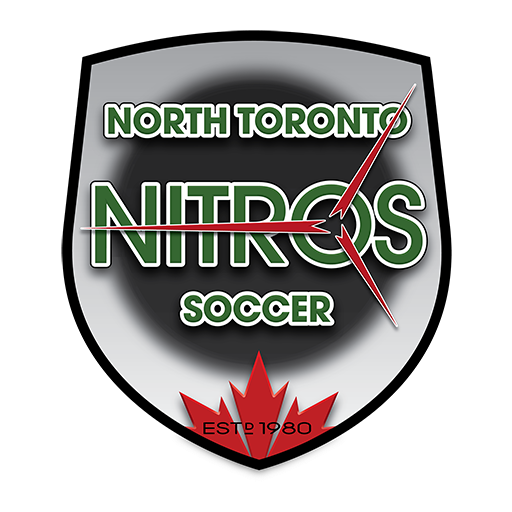Head referee Adrian Tanjala explains his role with the Referee Program and his aspirations for the club’s diverse and inclusive culture to inspire the local soccer community.
What does your role involve on a day-to-day basis?
Everyday has something new to do. During the spring and summer, I’m spending most of my time scheduling referees, supervising and coordinating them on-field, and of course working on progressing the development of our referee staff. I also create educational materials and refine the club’s philosophy towards the recruitment, education, evaluation, retention, and recognition of match officials.
I coordinate and oversee all U13+ leagues on behalf of the recreational program, and on the odd weekend in the spring and summer I’ll head out to teach an Ontario Soccer referee course or referee OPDL. As the months get colder my role shifts towards more strategic planning for the referee program, where, in collaboration with colleagues from across the club, we look at the strengths and weaknesses of our officials, how we incentivize officials to stay with the club or the sport, or how we can recruit new officials.
Why is your program important to you, and to the community?
Refereeing is very near and dear to my heart. I have refereed since I was 15 and have never regretted my decision. Refereeing can be gruelling and unforgiving, but it is equally essential to ensuring the sport lives on – no organized soccer can proceed without a referee.
Yet refereeing in Ontario presently faces a crisis. We simply don’t have enough match officials province-wide to serve our communities, nor are we recruiting and retaining in a sustainable manner.
The Referee Program is the first soccer environment new referees will encounter, operating primarily at the grassroots level and providing opportunities to advance to competitive and high-performance soccer. Creating an environment that welcomes new referees and encourages them to make mistakes and learn from them is paramount to me as it is to our community and the sport.
How did you get into the sport and your current role at North Toronto Soccer?
I’ve been playing soccer since I was little but left competitive play at around 14. Refereeing challenged me to think critically about soccer and the way I interact with and manage the many moving parts to the sport – a challenge that motivates me to keep coming to the pitch day after day.
It was the ugly side of refereeing that led me into my current role at North Toronto Soccer; I suffered a serious referee assault at a U18 boys recreational match in July 2021, and took months off from the sport thereafter to process and recover. Incidents like that are not isolated but derive from a culture of disrespect existing in the sport, and eliminating such a culture requires active, deliberate leadership. When I saw the posting for this role, I knew I had found the perfect opportunity to practice that kind of leadership, making a real difference for match officials and the soccer communities they serve.
What is something that a lot of people don’t know about the Referee Program at North Toronto Soccer?
Over half of the games covered by our program involve recreational youth players between the ages of nine and 12, who are new to the sport, not familiar with the laws of the game. At this level, referees are teachers far more than they are enforcers, so we teach them to be experts in the laws, and to translate that expertise to youth in an easy-to-understand and friendly way.
The ideal referee we envision is someone who youth players want to high five at the end of a game, not a third-party person there to blow a whistle and give hand signals.
What are your tips for other people aspiring to support soccer officials in the community?
Simply offer to get involved. Referee leadership is always in immense demand; we need mentors, instructors, and assessors who lead with compassion, wisdom, and respect. While attaining a senior leadership role takes time, build up from the basic elements of mentoring, teaching, and assessing referees – and the rest will come.
More broadly, to remember that the purpose of a career in sport is to serve our community and create change within the sport. Change is generally incremental, so setting small but progressive goals as a sport leader is the best way to generate internal motivation and fulfilment.
What are your aspirations for people at North Toronto Soccer?
My aspirations extend to the entire community – players, coaches, parents, and of course referees themselves. The goal is a culture of respect in a place where every member understands that the referees on the pitch will make mistakes – as humans do – and members of our community are willing to accept those mistakes with empathy and compassion towards the challenging job of split-second decision-making on the field.
The great news is that achieving this goal is not an uphill battle. North Toronto Soccer is a progressive and open-minded club, meaning the groundwork for building a culture of respect in the community was there well before I joined. My hope is that this culture of respect goes beyond club boundaries, and inspires a similar culture at the district and provincial levels as well.
What makes North Toronto Soccer special?
The community and culture at this club is truly unparalleled. Although unlike many colleagues who had played and worked here their whole lives, I was immediately welcomed into the friendliest and most passionate sport community I’ve ever seen; it feels like family now.
Another immense strength of the club is its welcoming of diversity. The broader geographical community we serve is highly diverse and the club’s efforts to generate a staff team that represents the people we serve and is highly responsive to matters of equity, diversity, and inclusion definitely stand out within the broader soccer community.







